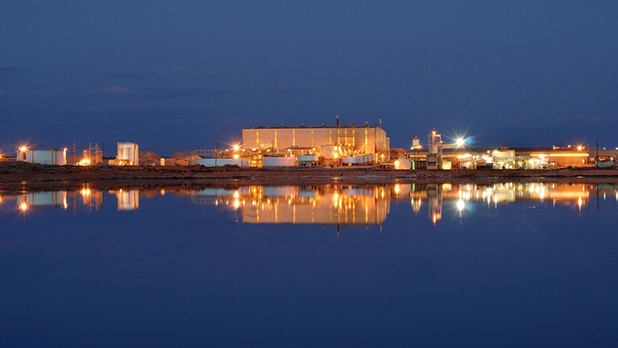The Grand Canyon Trust’s references to Energy Fuels’ recycling programs as “radioactive waste” is deceitful. These programs save the world’s resources, reduce the need for mining, and reduce carbon emissions. The mill has already recycled enough uranium to produce the same amount of electricity as the coal contained in a train that stretches nearly from Los Angeles to New York City and back again. It has recycled enough vanadium needed for the steel to build four and a half Golden Gate Bridges.
By Joe B. Lyman
Joe B. Lyman: Clean tech and clean energy will clean up in Southeast Utah
Grand Canyon Trust is wrong to attack the White Mesa Mill near Blanding
It must be easy for the Grand Canyon Trust to attack a company and community from afar. In a recent commentary in The Salt Lake Tribune, an activist from the Arizona-based organization argued that Energy Fuels’ White Mesa Mill, located just a few miles south of Blanding, but 250 miles from this group’s headquarters in Flagstaff, should, in effect, cease operations for reasons centered on misrepresentations and half-truths.
Those of us who actually live and work in Blanding and San Juan County see things much differently, and it’s time to set the record straight.
Our area is proud to be home to the White Mesa Mill, one of the most important critical mineral facilities in the U.S. As the largest private employer in San Juan County, the mill offers significant benefits for our community, providing well-paying jobs supporting our schools and driving local economic activity.
Building on the mill’s strong operational and environmental record, we now have a real opportunity to transform southeast Utah into a clean tech hub. These kinds of opportunities are rare in our region. Historically, the White Mesa Mill has processed the uranium used to fuel nuclear power plants that provide nearly 55% of the United States’ clean electricity. This valuable and important work continues today.
Energy Fuels is now applying that expertise to build a new U.S. rare earth element supply chain. The company recently embarked on an effort to process natural ore produced in Georgia at the mill. In addition to uranium, this material contains significant quantities of rare earth elements which are essential in permanent magnets used in technologies like electric vehicles, cell phones and renewable energy systems. With Energy Fuels’ goal to eventually provide 50% or more of U.S. demand for rare earths, Southeast Utah has the potential to become the center of a new, critical American industry.
The White Mesa Mill could also break the years-long stalemate facing efforts to clean up the contamination on the Navajo Nation caused by government-sponsored uranium mining during the Cold War. The Grand Canyon Trust continues to deceitfully weaponize that decades old history against the modern uranium mining industry.
Things have changed. The mill is highly regulated and has an exceptional record of environmental responsibility. In fact, Energy Fuels offers a way to immediately address this historical legacy and end the suffering of many Navajo and other Native American people.
Other clean up solutions being considered would require licensing and building new facilities, further delaying this important and necessary work. Meanwhile, the White Mesa Mill can accept and recycle material today. Not 10 years from now – today. Energy Fuels will recycle this material and transform it into uranium that can be used to produce clean, nuclear energy. The mill is in fact part of the solution to the problems of the past that the Grand Canyon Trust blindly uses to argue for the mill’s closure.
The Grand Canyon Trust’s references to Energy Fuels’ recycling programs as “radioactive waste” is deceitful. These programs save the world’s resources, reduce the need for mining, and reduce carbon emissions. The mill has already recycled enough uranium to produce the same amount of electricity as the coal contained in a train that stretches nearly from Los Angeles to New York City and back again. It has recycled enough vanadium needed for the steel to build four and a half Golden Gate Bridges.
Continue reading here
Joe B. Lyman is the mayor of Blanding, Utah



